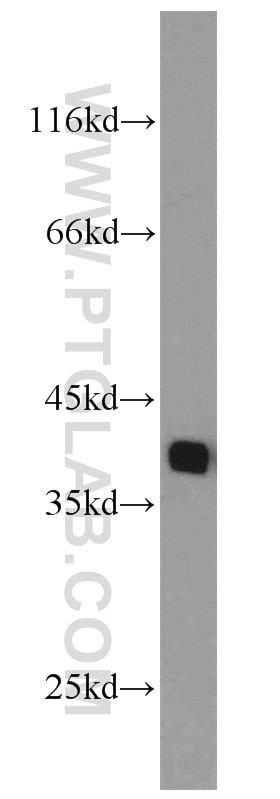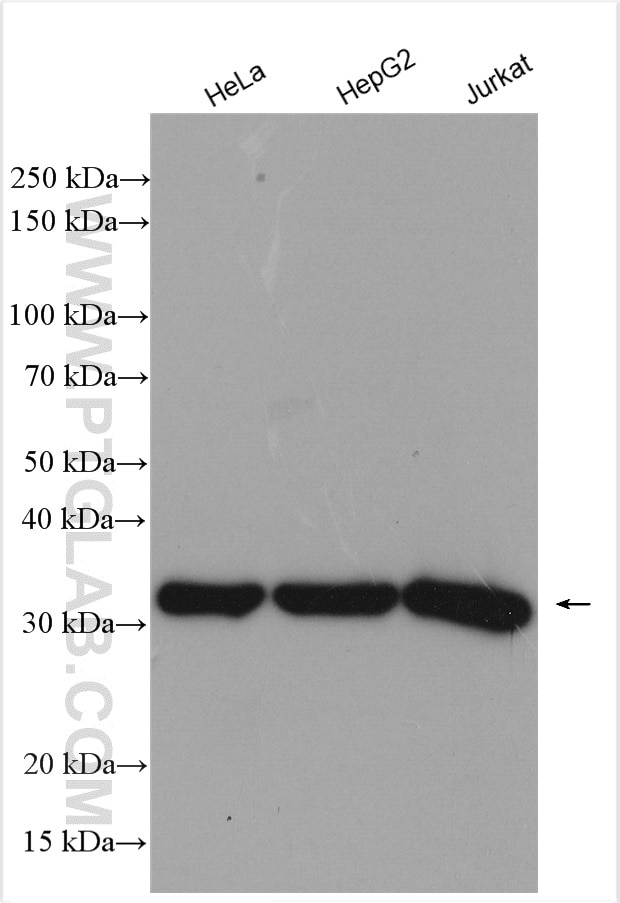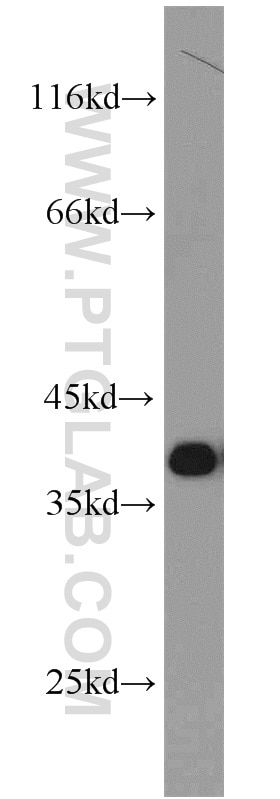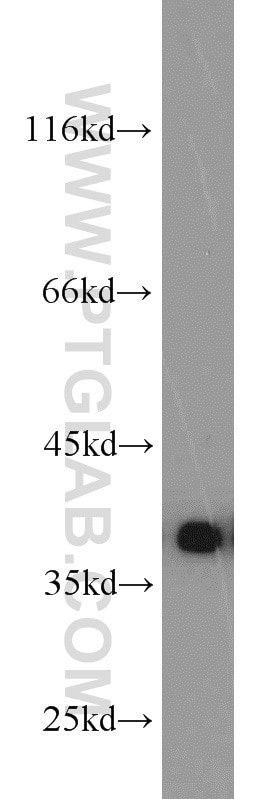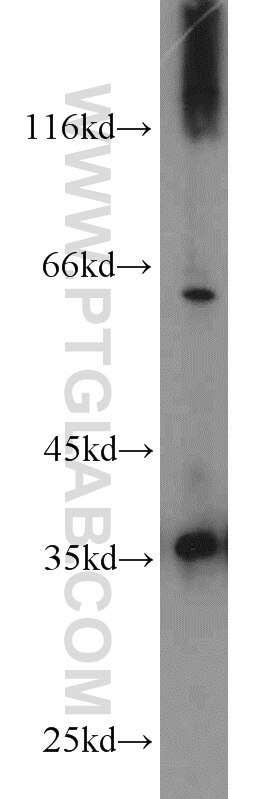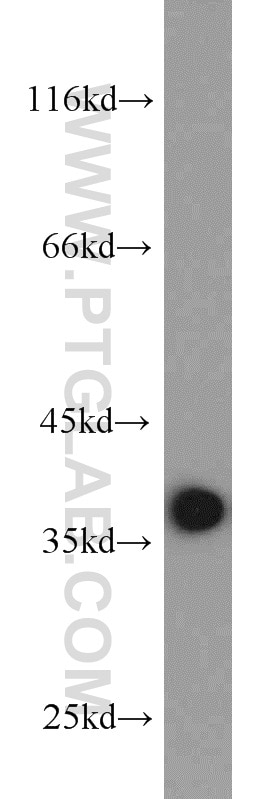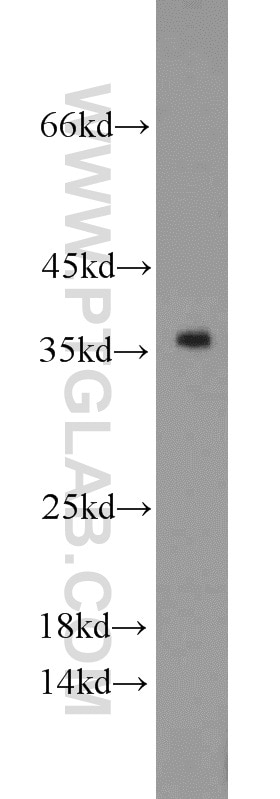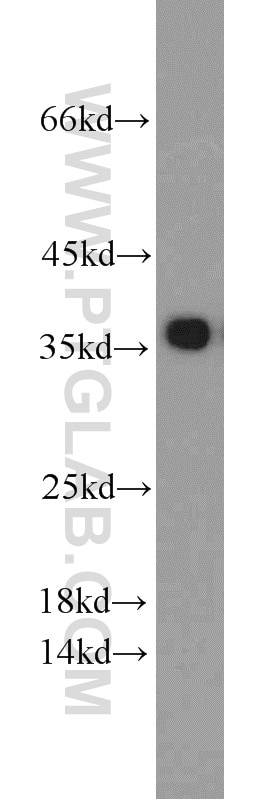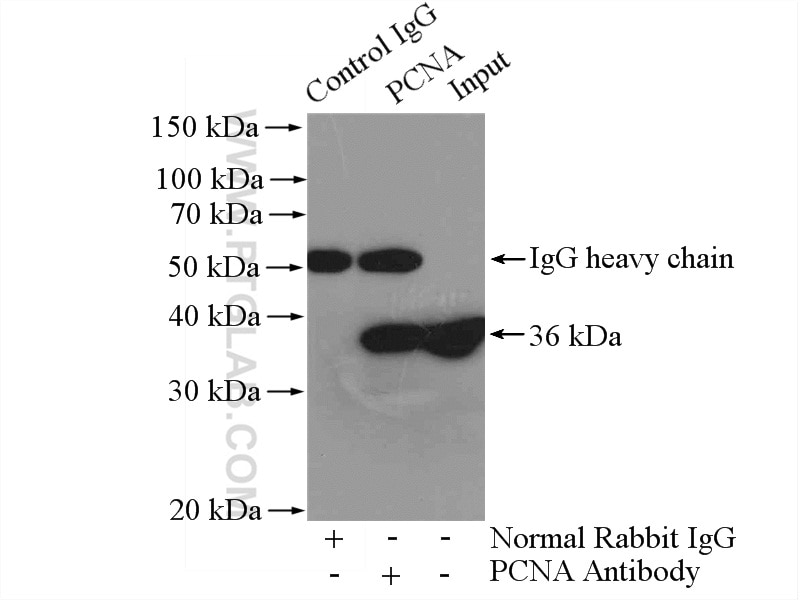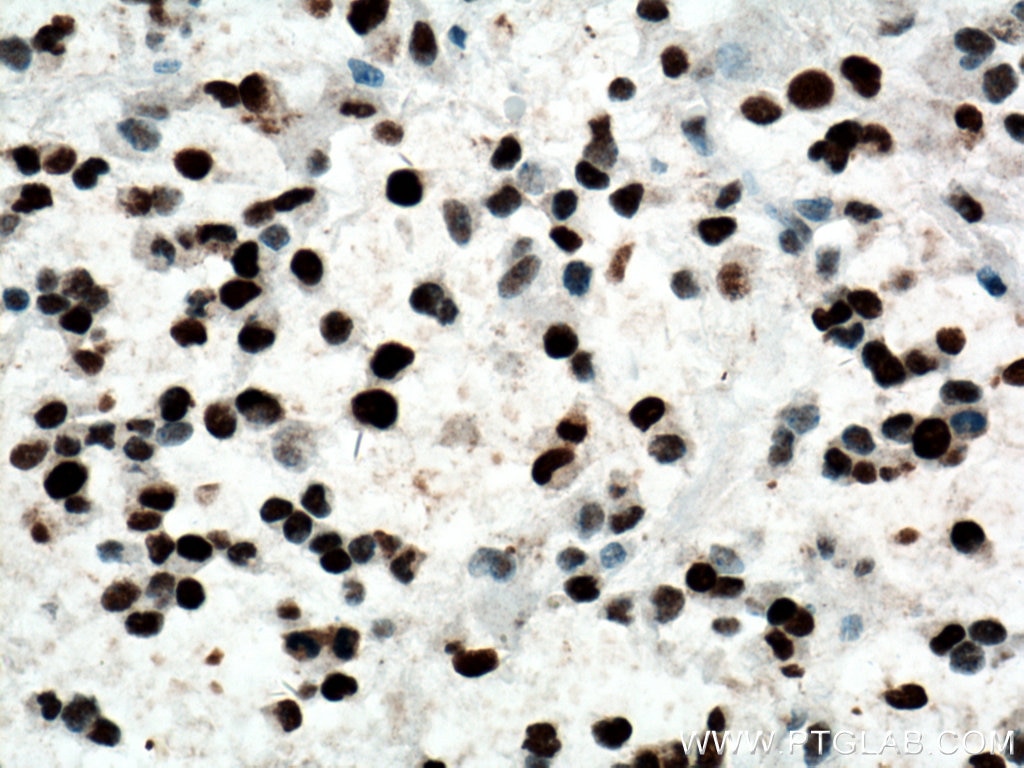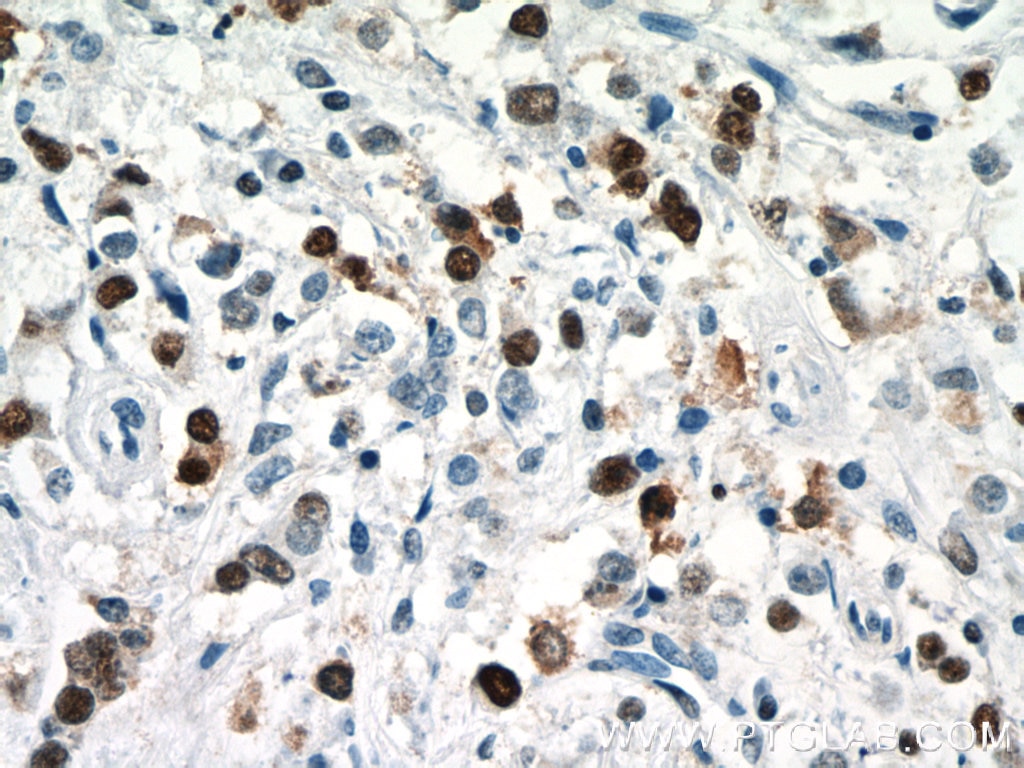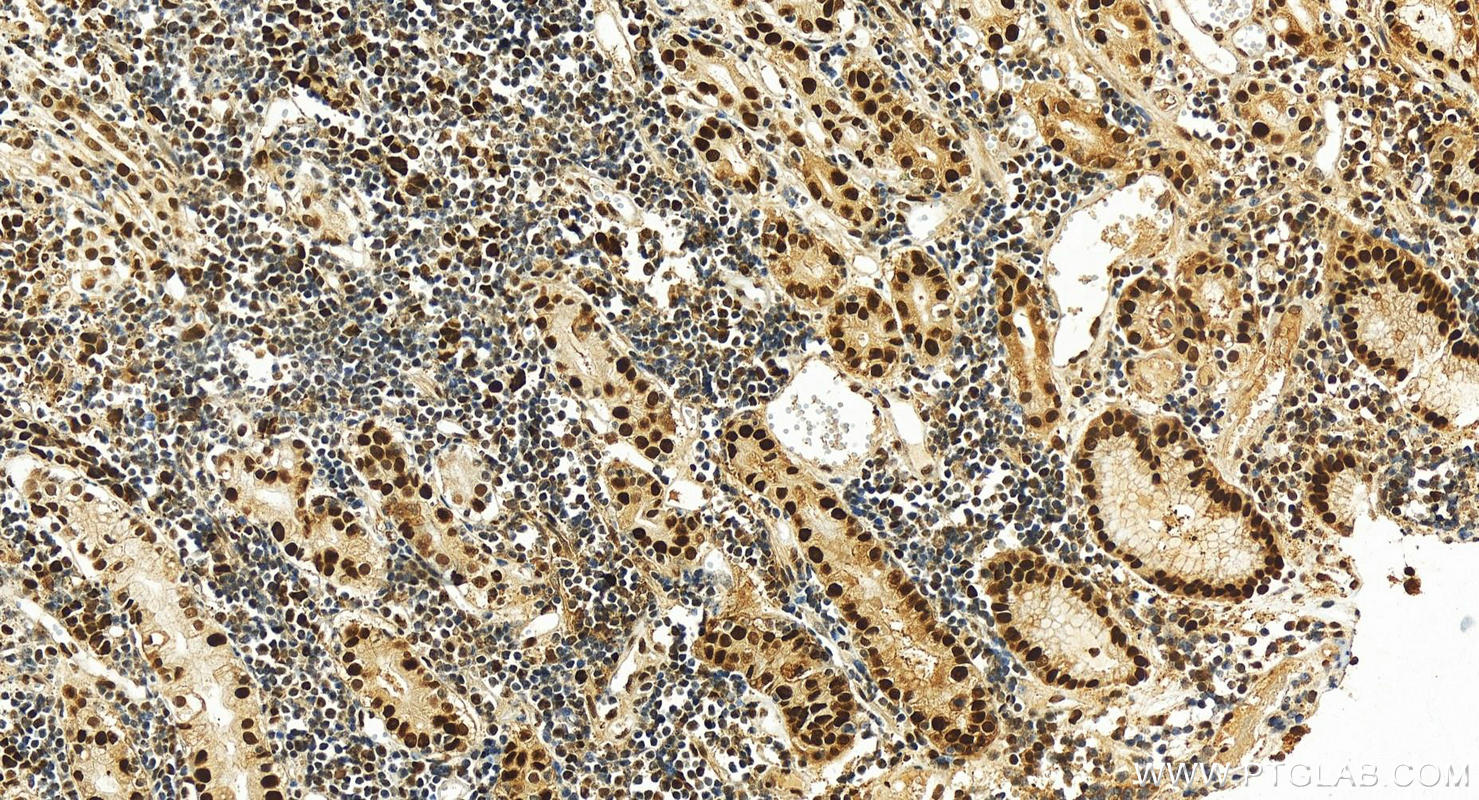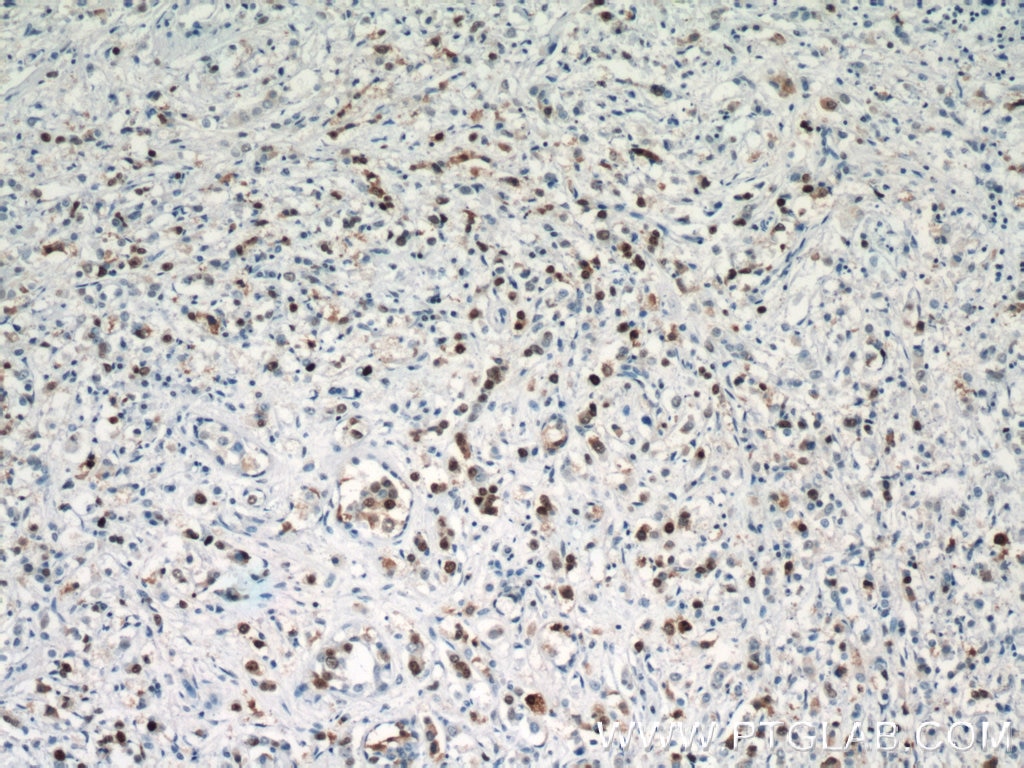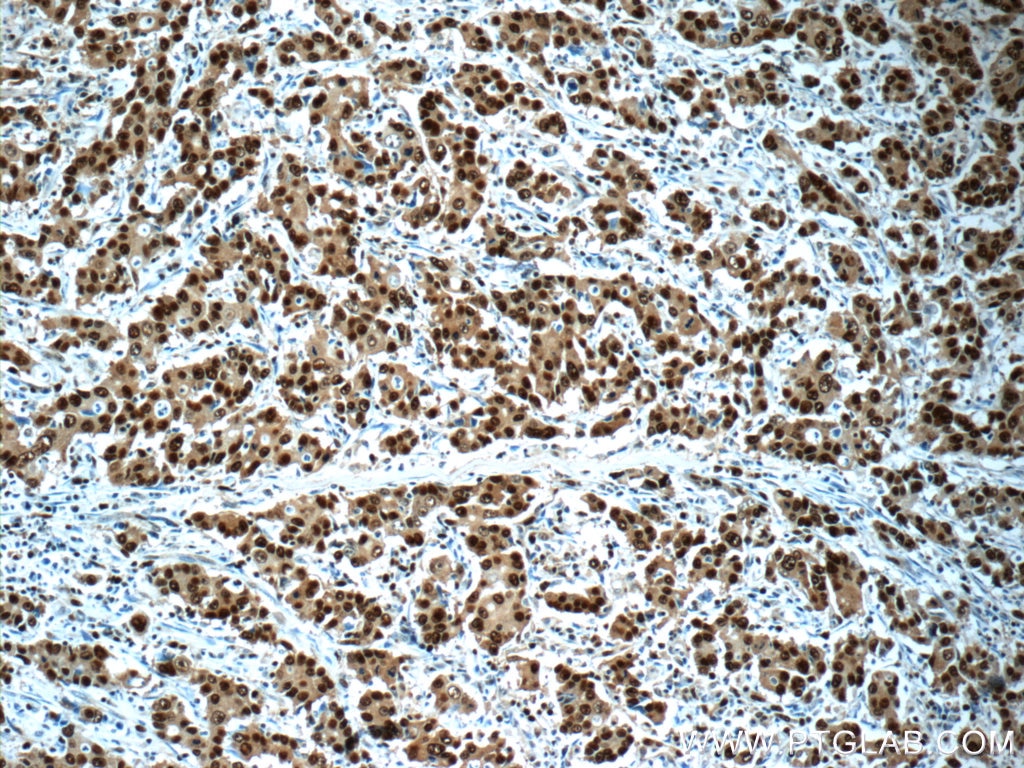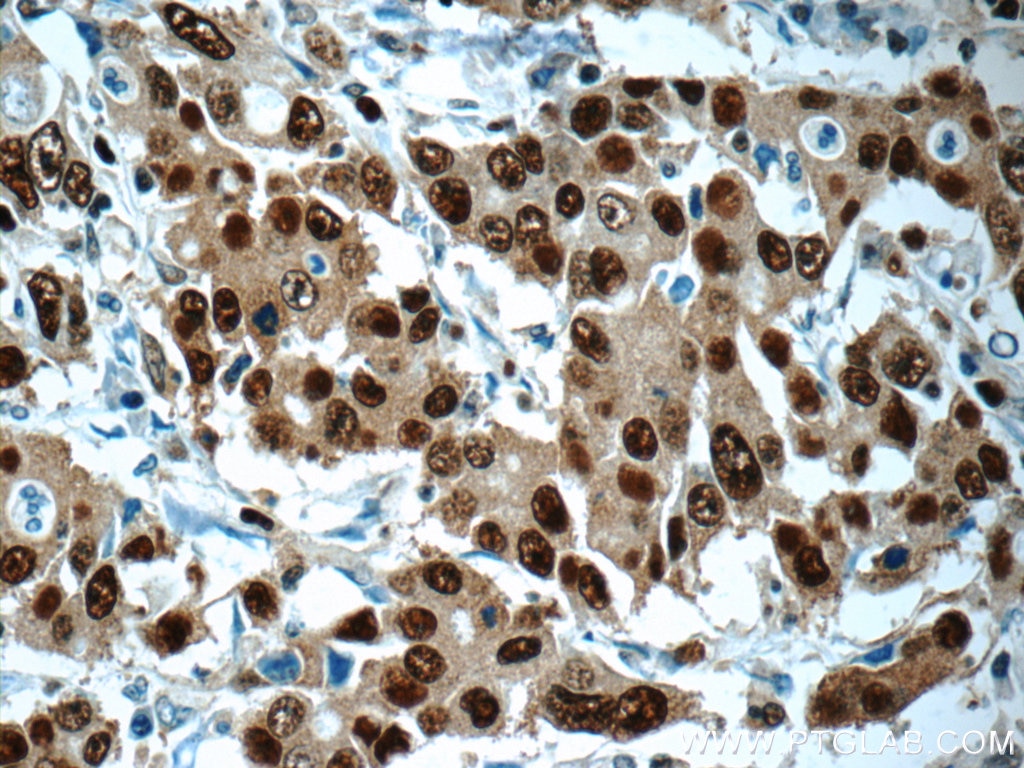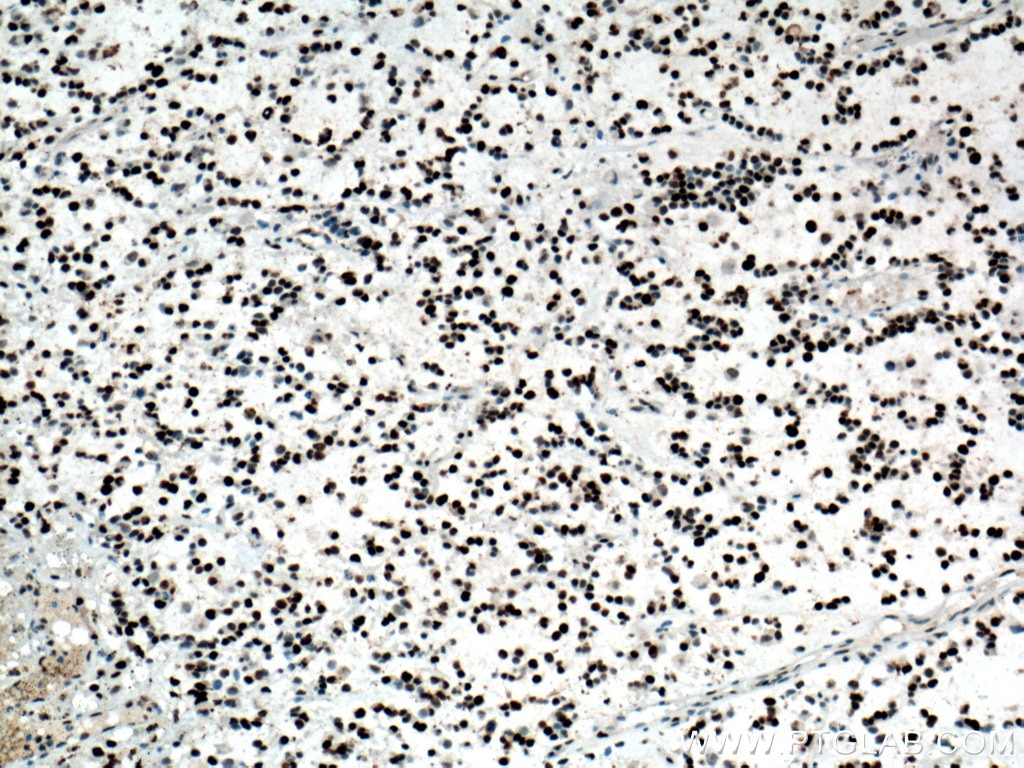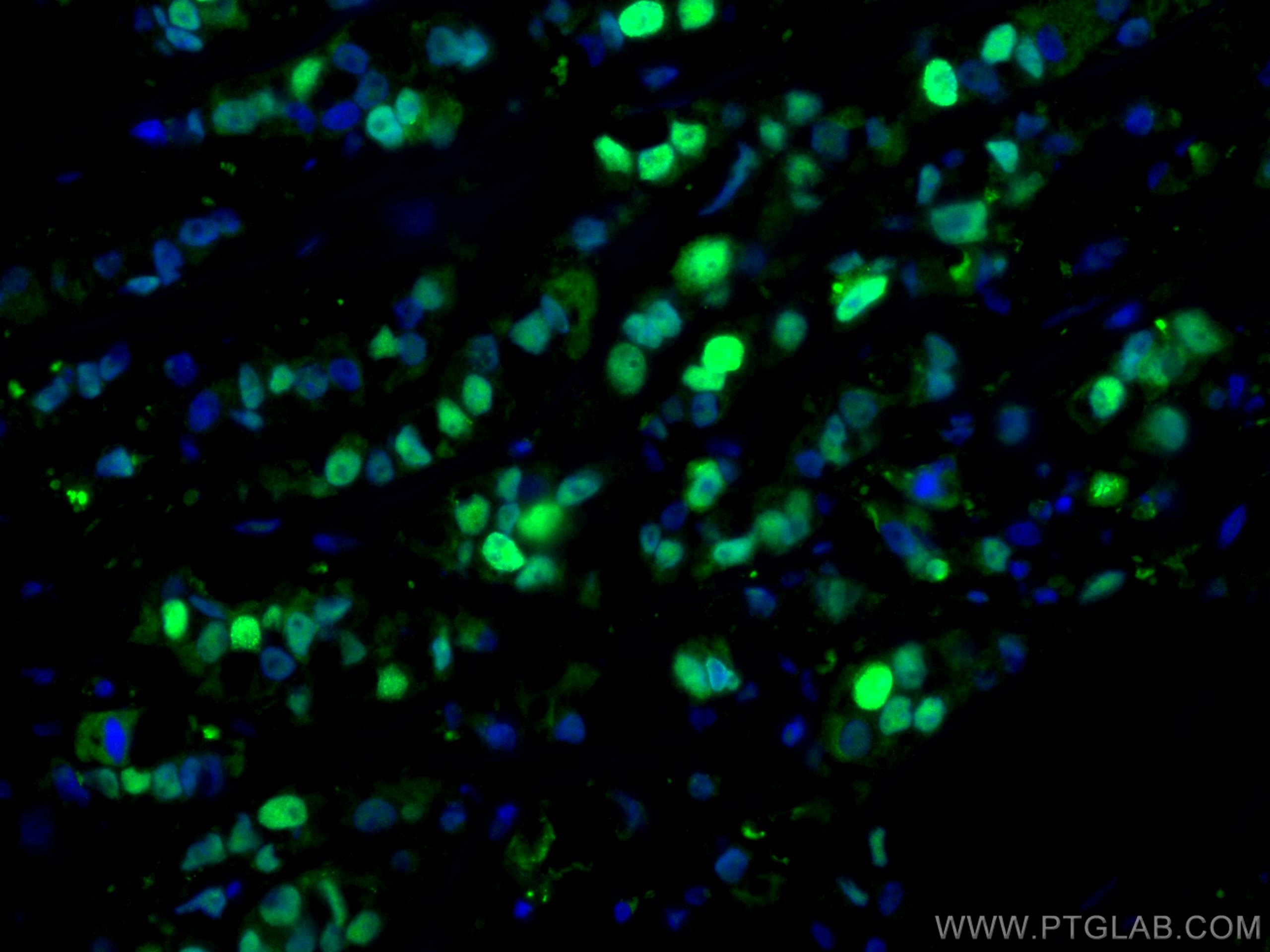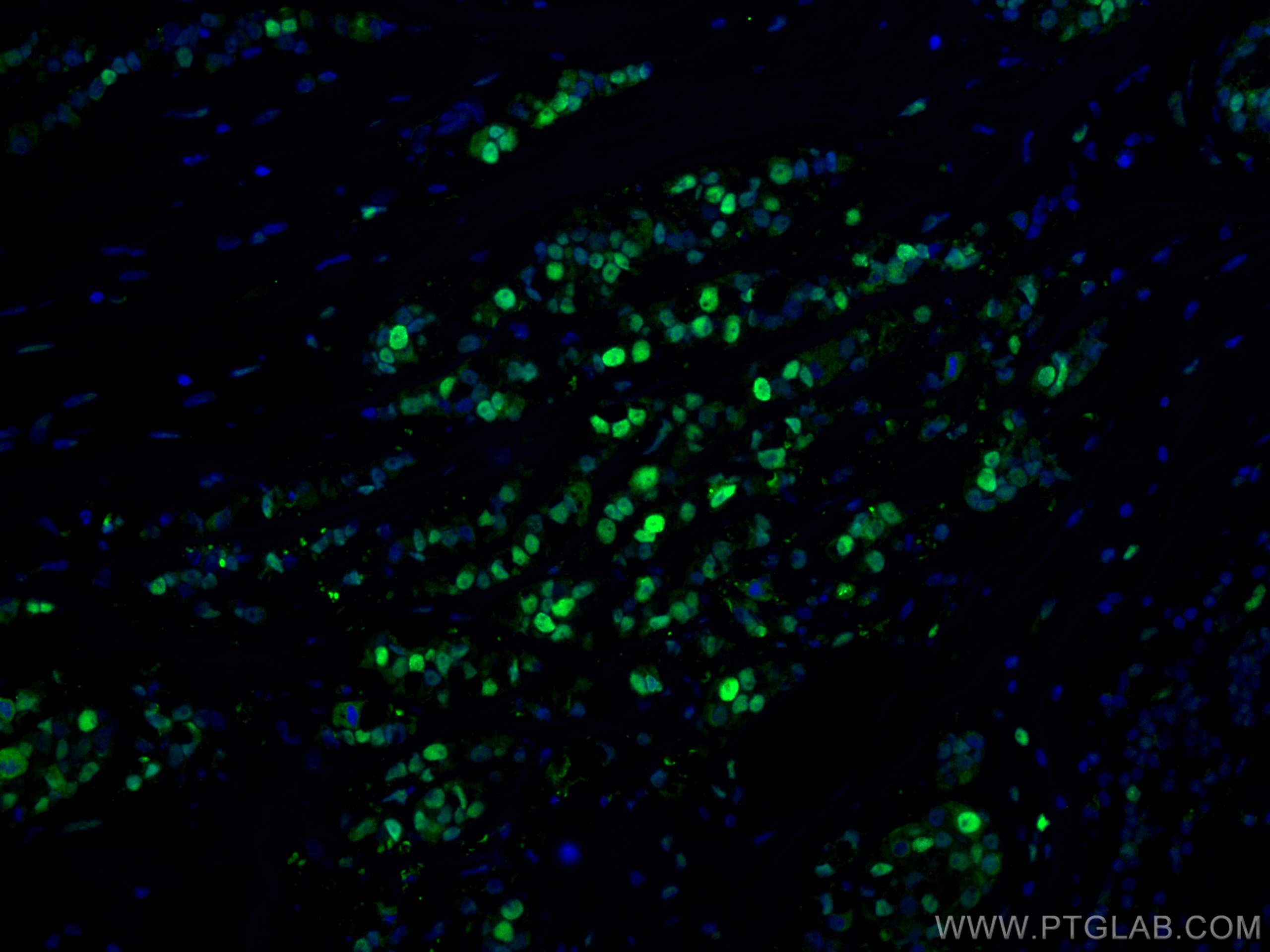Anticorps Polyclonal de lapin anti-PCNA
PCNA Polyclonal Antibody for WB, IHC, IF-P, IP, ELISA
Hôte / Isotype
Lapin / IgG
Réactivité testée
Humain, rat, souris et plus (2)
Applications
WB, IHC, IF-P, IP, RIP, ELISA
Conjugaison
Non conjugué
N° de cat : 24036-1-AP
Synonymes
Galerie de données de validation
Applications testées
| Résultats positifs en WB | cellules HeLa, cellules HEK-293, cellules HepG2, cellules Jurkat, cellules MCF-7, cellules NIH/3T3, cellules Raji, tissu hépatique de rat, tissu testiculaire de souris |
| Résultats positifs en IP | cellules HEK-293 |
| Résultats positifs en IHC | tissu de cancer du sein humain, tissu de cancer de l'estomac humain, tissu de gliome humain il est suggéré de démasquer l'antigène avec un tampon de TE buffer pH 9.0; (*) À défaut, 'le démasquage de l'antigène peut être 'effectué avec un tampon citrate pH 6,0. |
| Résultats positifs en IF-P | tissu de cancer du sein humain, |
Dilution recommandée
| Application | Dilution |
|---|---|
| Western Blot (WB) | WB : 1:2000-1:14000 |
| Immunoprécipitation (IP) | IP : 0.5-4.0 ug for 1.0-3.0 mg of total protein lysate |
| Immunohistochimie (IHC) | IHC : 1:20-1:200 |
| Immunofluorescence (IF)-P | IF-P : 1:50-1:500 |
| It is recommended that this reagent should be titrated in each testing system to obtain optimal results. | |
| Sample-dependent, check data in validation data gallery | |
Applications publiées
| WB | See 18 publications below |
| IHC | See 16 publications below |
| IF | See 9 publications below |
| RIP | See 1 publications below |
Informations sur le produit
24036-1-AP cible PCNA dans les applications de WB, IHC, IF-P, IP, RIP, ELISA et montre une réactivité avec des échantillons Humain, rat, souris
| Réactivité | Humain, rat, souris |
| Réactivité citée | rat, Humain, Lapin, poisson-zèbre, souris |
| Hôte / Isotype | Lapin / IgG |
| Clonalité | Polyclonal |
| Type | Anticorps |
| Immunogène | PCNA Protéine recombinante Ag7416 |
| Nom complet | proliferating cell nuclear antigen |
| Masse moléculaire calculée | 29 kDa/31 kDa |
| Poids moléculaire observé | 36-38 kDa |
| Numéro d’acquisition GenBank | BC000491 |
| Symbole du gène | PCNA |
| Identification du gène (NCBI) | 5111 |
| Conjugaison | Non conjugué |
| Forme | Liquide |
| Méthode de purification | Purification par affinité contre l'antigène |
| Tampon de stockage | PBS with 0.02% sodium azide and 50% glycerol |
| Conditions de stockage | Stocker à -20°C. Stable pendant un an après l'expédition. L'aliquotage n'est pas nécessaire pour le stockage à -20oC Les 20ul contiennent 0,1% de BSA. |
Informations générales
The proliferating cell nuclear antigen (PCNA), a protein synthesized in early G1 and S phases of the cell cycle, functions in cell cycle progression, DNA replication and DNA repair. In early S phase, PCNA exhibits granular distribution and is absent from the nucleoli; however, in late S phase, it relocates to the nucleoli. PCNA exists in two basic forms: one involved in ongoing DNA replication, which localizes specifically to the nucleus, and a second, soluble form, not implicated in constant synthesis. Interestingly, the latter form degrades in the presence of organic solvents, rendering it undetectable by histological methods in tissues using organic fixatives, and thus also providing a method of visualizing only the synthesizing form.This antibody specifically react with the 36kd human PCNA protein.
Protocole
| Product Specific Protocols | |
|---|---|
| WB protocol for PCNA antibody 24036-1-AP | Download protocol |
| IHC protocol for PCNA antibody 24036-1-AP | Download protocol |
| IF protocol for PCNA antibody 24036-1-AP | Download protocol |
| IP protocol for PCNA antibody 24036-1-AP | Download protocol |
| Standard Protocols | |
|---|---|
| Click here to view our Standard Protocols |
Publications
| Species | Application | Title |
|---|---|---|
Int J Biol Sci Tendon Cells Root Into (Instead of Attach to) Humeral Bone Head via Fibrocartilage-Enthesis | ||
Biochem Pharmacol Plasma Exosomes Confer Hypoxic Pulmonary Hypertension by Transferring LOX-1 Cargo to Trigger Phenotypic Switching of Pulmonary Artery Smooth Muscle Cells | ||
Biochem Pharmacol CGRP attenuates pulmonary vascular remodeling by inhibiting the cGAS-STING-NFκB pathway in pulmonary arterial hypertension | ||
Am J Cancer Res YY1-induced lncRNA00511 promotes melanoma progression via the miR-150-5p/ADAM19 axis | ||
Hepatol Commun Hepatocellular carcinoma cells downregulate NADH:Ubiquinone Oxidoreductase Subunit B3 to maintain reactive oxygen species homeostasis |
